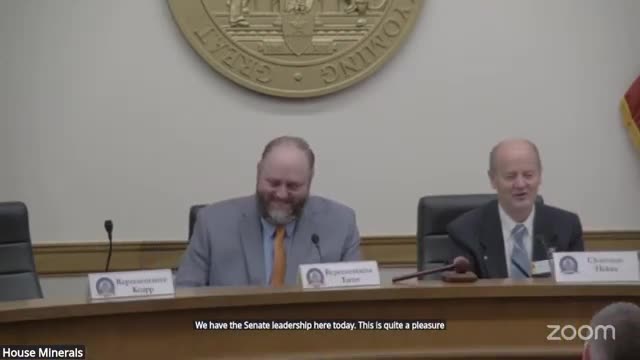Committee approves emergency bridge-loan program for small businesses after disasters
Get AI-powered insights, summaries, and transcripts
Subscribe
Summary
Senate File 195 passed the committee as amended to create a short-term, zero-interest bridge loan program for small businesses in declared disaster areas, funded initially at $25 million and administered by the Office of State Lands and Investments.
The Minerals, Business & Economic Development Committee advanced Senate File 195, sending the bill to general file after amendments. The legislation would create a Small Business Emergency Bridge Loan Program that provides short-term, zero-interest secured loans to eligible Wyoming small businesses located in counties subject to a gubernatorial disaster declaration.
Senator Curt (presented as Senator Beitman in testimony) described the bill’s purpose and genesis based on wildfire experience: “This program does that, by providing these 0 interest short term loans to, to allow them to quickly be approved through their local banks and, get the funds they need to continue their operations and to begin rebuilding immediately instead of waiting around for 6, 7, 12, 14, 16 months …” He told the committee the program began as an agricultural idea after the Elk Fire but was broadened to help small businesses generally and to include infrastructure failures as eligible disasters.
Key features passed in committee as amended include a per-business loan cap not to exceed $750,000 (the sponsor said an earlier version had a higher cap that was reduced), a repayment period up to three years, and an initial appropriation of $25,000,000 to establish a revolving loan account. Loans must be secured; applicants must be physically located in Wyoming, own at least 50 percent of the business, and meet a minimum credit-score threshold included in the bill (550). The Legislature added a clarifying amendment so security can include “insurance proceeds or other anticipated funds” produced by the disaster; the committee also broadened the statutory examples of eligible uses to read “business vehicles” and added the phrase “but not limited to” when listing example purposes.
Administration and timing provisions drew sustained attention. An earlier sponsor proposal sought 24-hour loan approval; the enacted committee amendment extended that target to no more than five days while emphasizing the program should operate quickly. The bill assigns administration to the Office of State Lands and Investments (OSLI); committee discussion noted the Office already administers state loan programs but raised concerns about typical meeting schedules for the State Loan and Investment Board (SLIB). Witnesses urged rulemaking that allows rapid approval by the OSLI director rather than waiting for scheduled SLIB meetings.
Witnesses representing agricultural and business groups and local government praised the program’s speed focus. Jim McGagna of the Wyoming Stock Growers Association said timely help is essential: “that $10,000 or that $25,000 that came 5 days after I requested assistance was so critical to me in enabling me to move on to the next step.” The Wyoming Bankers Association and community banks testified they would be voluntary lenders in the program and would continue customary underwriting to protect loan safety and soundness; the bill provides a 2 percent origination fee (1 percent to the lender, 1 percent to the state) to compensate participating lenders for processing loans.
Action at the meeting: Representative Weber moved the bill as amended out of committee; Representative Tarver seconded. The roll-call vote recorded eight ayes, zero noes and one excused member. The committee placed the bill on general file.
